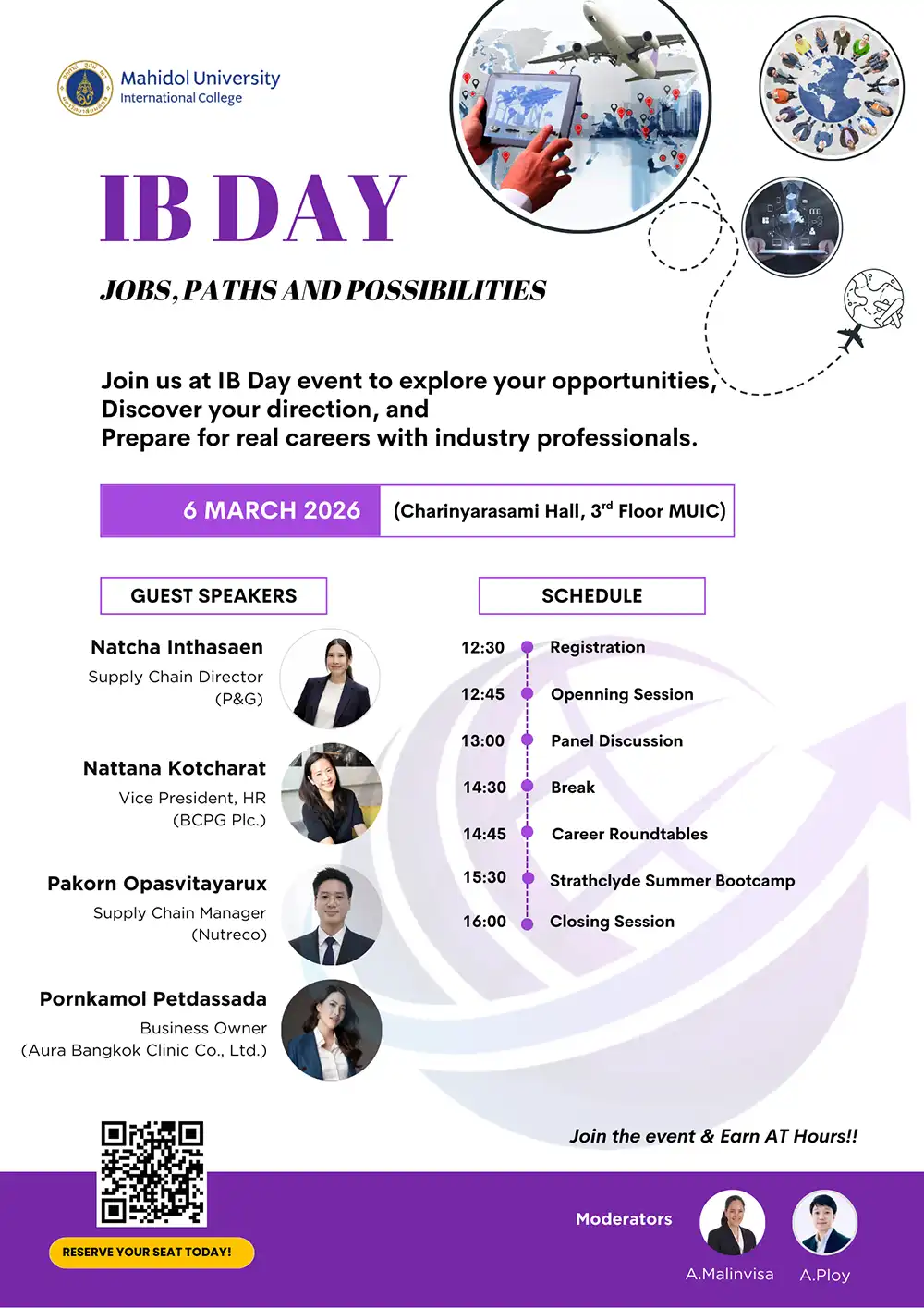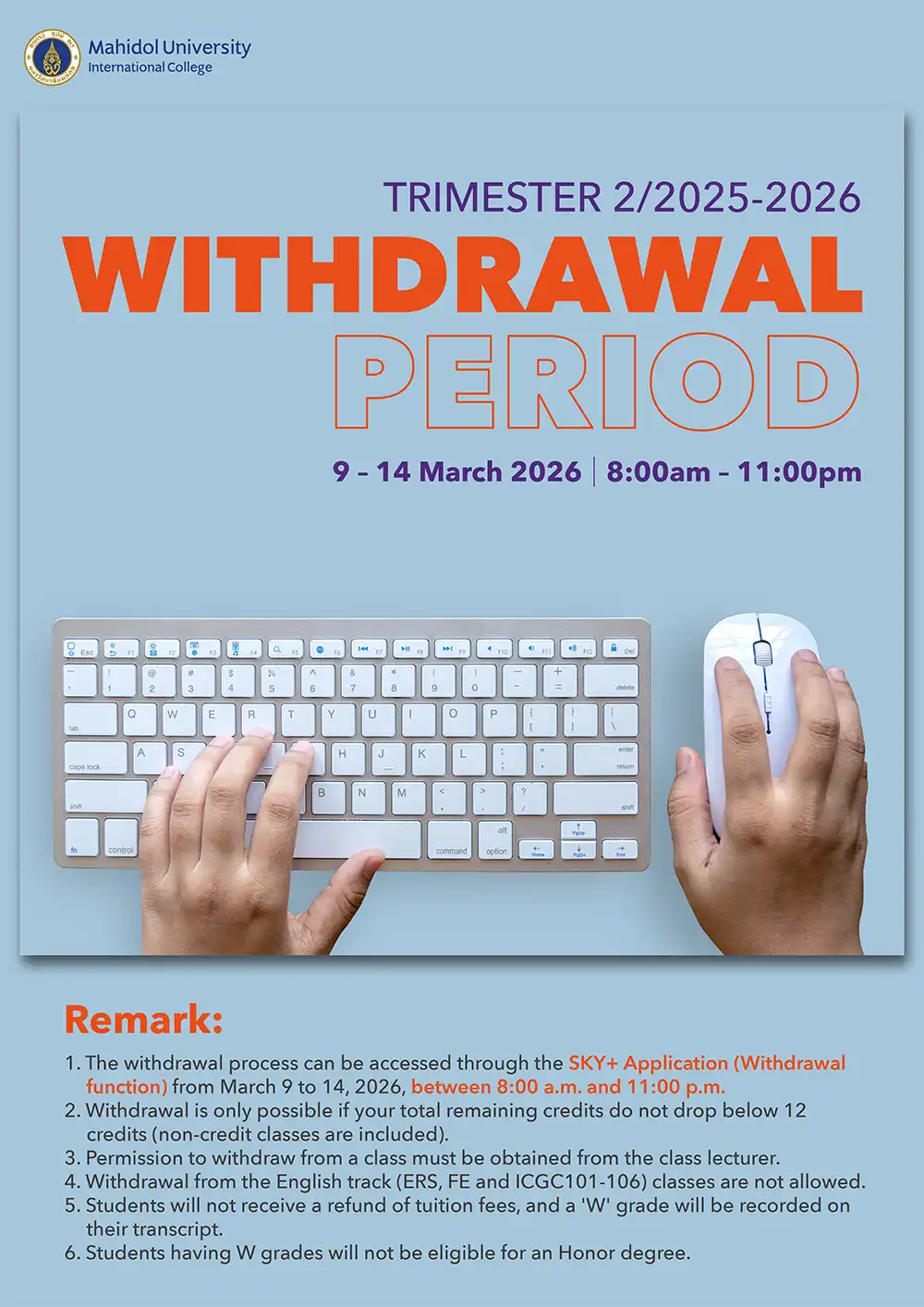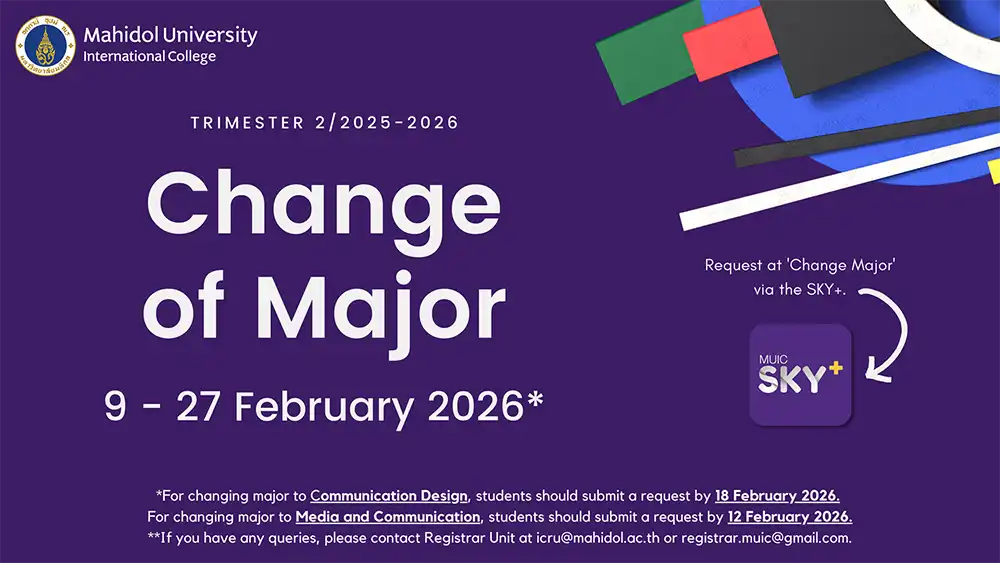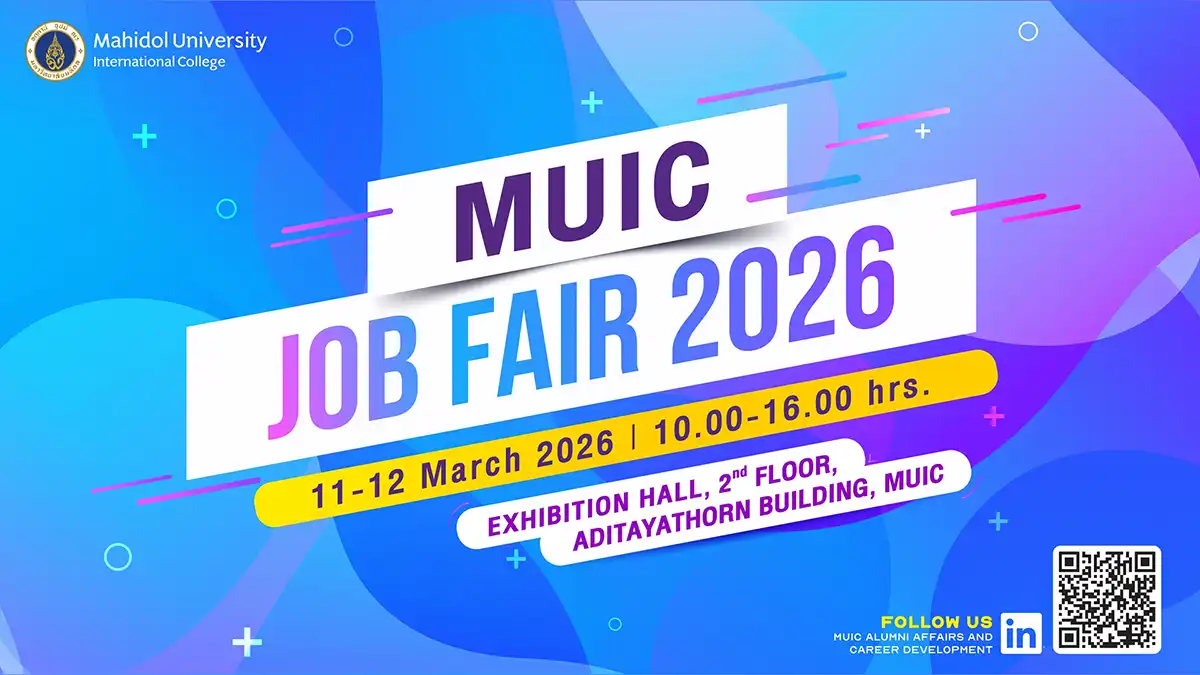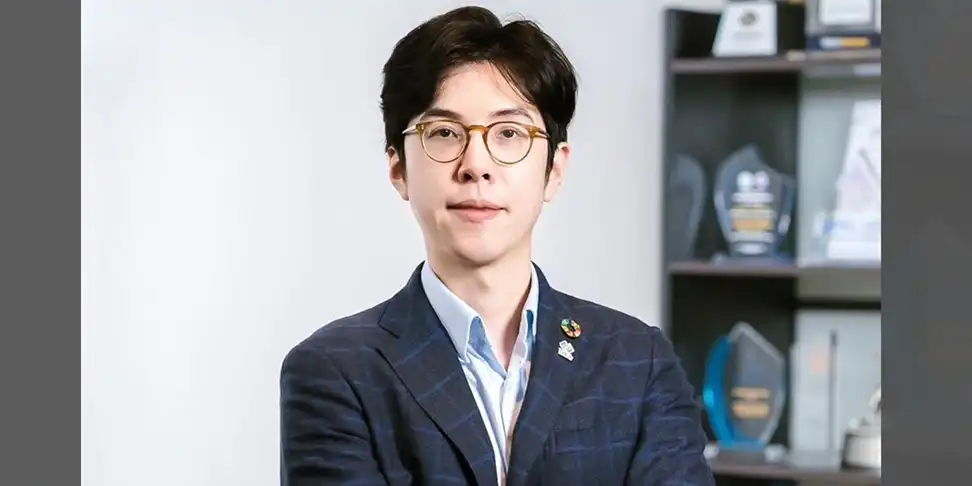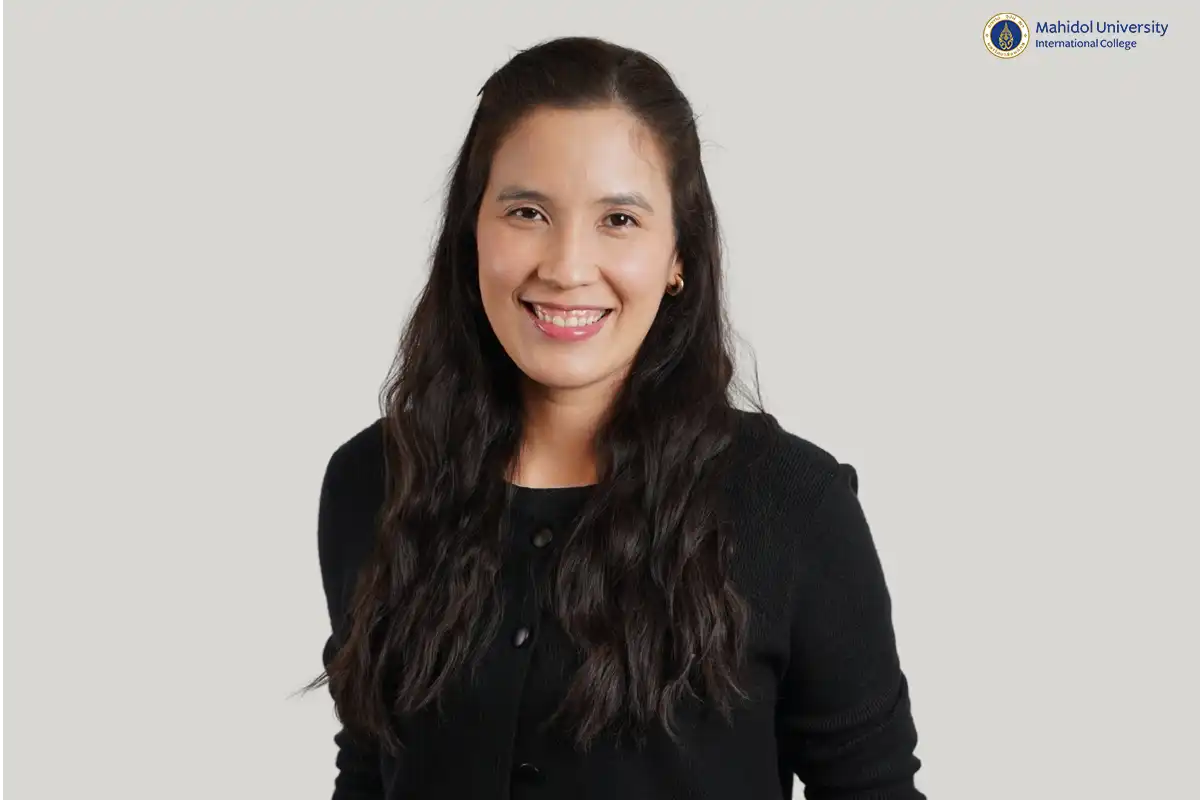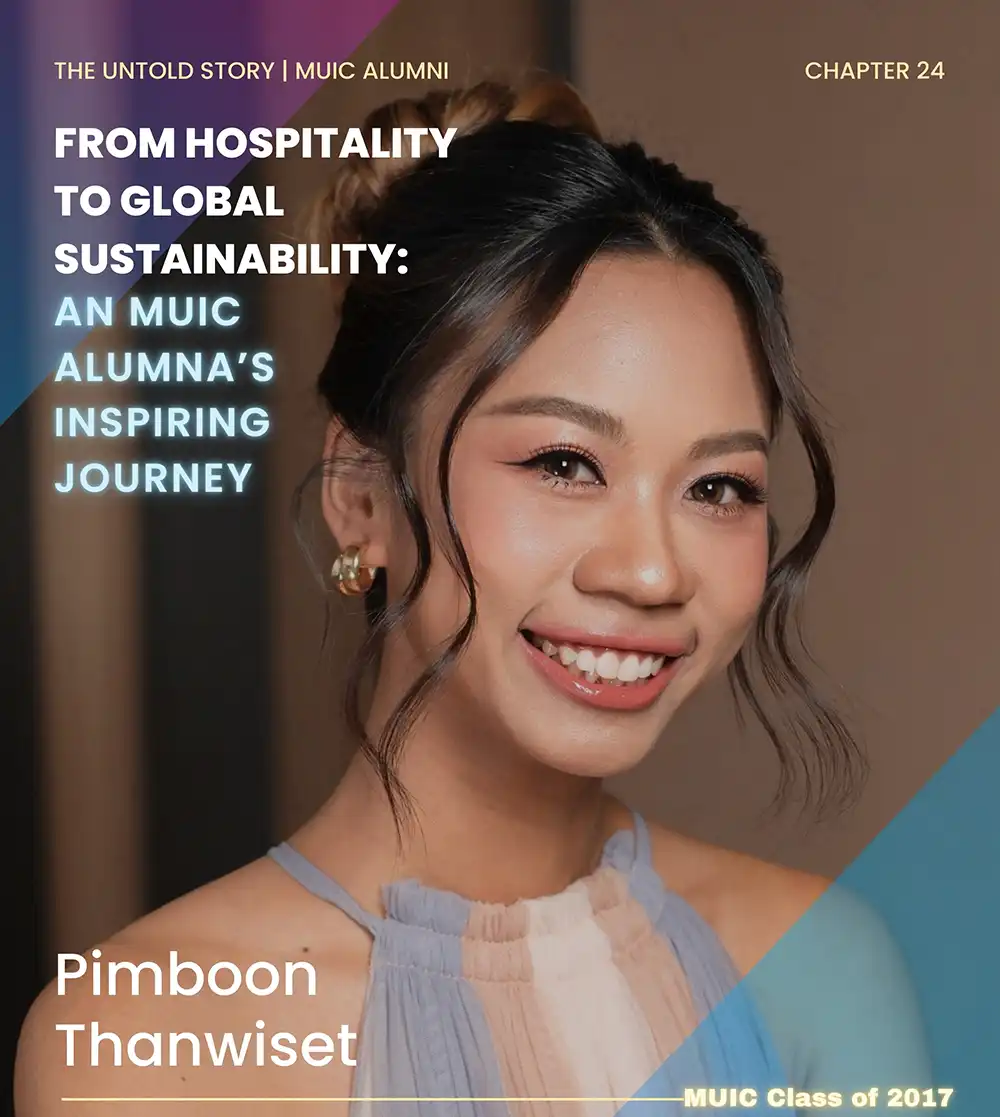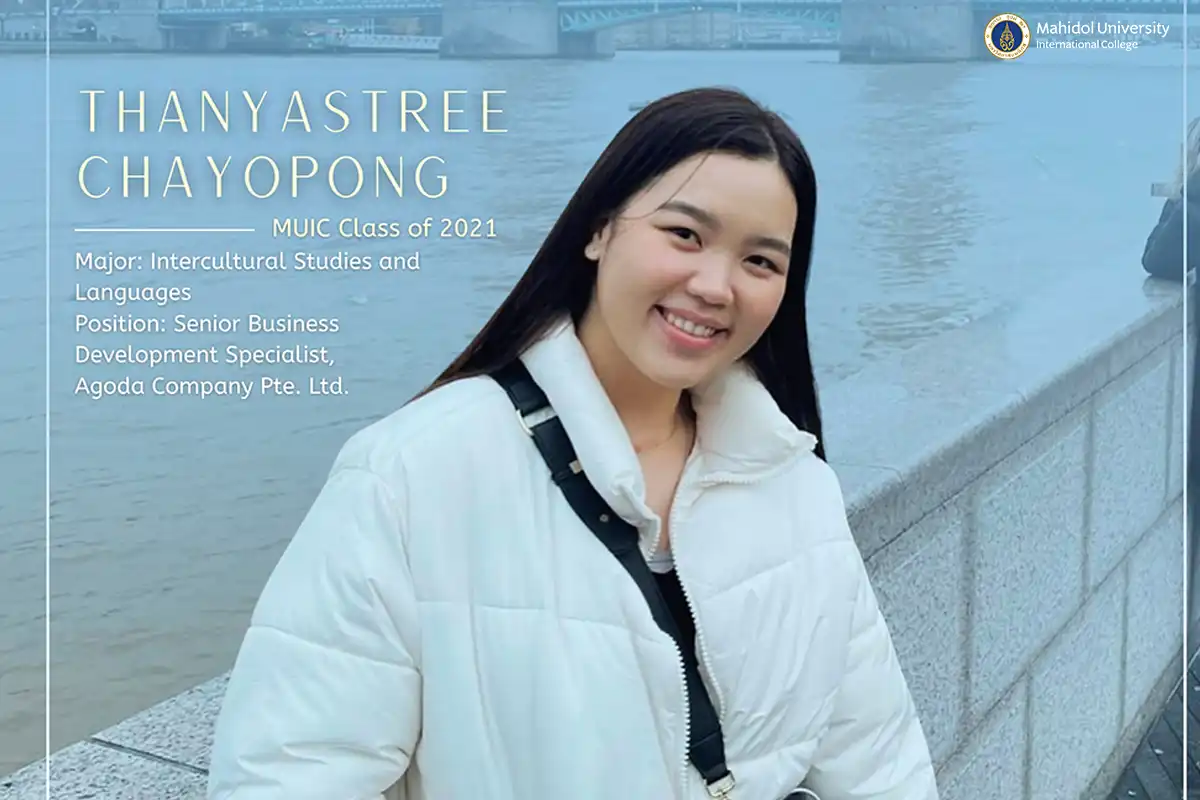It’s Nicha’s Journey
June 13, 2022 2022-06-15 5:22It’s Nicha’s Journey
- Introduce yourself/ What do you do?
I’m Nicha or you can call me Pahn. I’m working as a Research and Information Management Officer at the Protocol Division, Department of Protocol, Ministry of Foreign Affairs. I started this job 6 months after I had graduated from MUIC. I found it by searching for this position on the MFA’s website. Without knowing what tasks I would be really responsible for, I still decided to apply for it because I would like to explore and challenge myself. I told myself that since I studied languages and cultures, then I can use my knowledge and experience to serve the Ministry. - What does a ‘Research and Information Management Officer’ do?
I’ve been working here for one year already. As a Research and Information Management Officer, my duties include assisting and supporting diplomats in the division. For instance, my division is responsible for facilitating the protocol matters on the appointment of the Thai ambassadors to foreign countries and the appointment of foreign ambassadors to Thailand. Due to these duties, there are many processes and documents to do so that I am among those who support the diplomats regarding these matters. I am also responsible for editing and updating the Diplomatic and Consular List, and many government agencies or other people who need to get the information can access it through the Protocol Department’s website. Furthermore, I’m one of the admins who update and post useful information regarding the Protocol Department via social media as well, which is very interesting because I have to choose which contents I should present, what should be written about it or how it should be structured. This is another task which I had never thought that I would have a chance to do. - What part of your job do you find most challenging?
From my point of view, almost every task I am doing is challenging because there are many sensitive issues regarding protocol matters. However, the most challenging part is on matters of communication. It is undeniable that mistakes can happen when you’re new on the job. Sometimes, the mistakes were due to what you have done, but sometimes, it happened because of others. Nevertheless, it is very challenging for me that when mistakes happened, we should deal with them by communicating in order to ease the situation. - How did you get through the hard times?
Actually, if I face hard times, I will accept and recognize them first, and then I will try to break from what I am doing for a while. For example, I might take a coffee break and then slowly think about what caused the problem, and after that I will try to address the cause. For instance, when I was still studying, I thought that the hardest time for me was when I was taking the final exam. Back then, I would take a break and think about why I found it difficult. After I found out that I did not truly understand all the topics, I would go to study some more. Yet, sometimes, the hard times also happen without me knowing why they happen. In this case, I would listen to music, watch movies, eat or even look for someone to talk to in order to make myself feel better. - How was your work related to your major in MUIC?
As I studied in the Intercultural Studies and Languages or ICCU program, I can apply the language skills I’ve learned in my current work. Also, having studied in the ICCU program helped me understand more the cultural complexity of societies which I can then adapt on my work because in the Ministry, we not only work with Thais but also with foreigners. - Why did you choose to study Intercultural Studies and Languages (ICCU) at MUIC?
I chose to study Intercultural Studies and Languages (Critical Studies of English concentration) at MUIC because I liked the numerous courses in the ICCU program, and as an MUIC student you could also choose by yourself and with the guidance of your advisor the subjects you want to study deeper. Furthermore, in my opinion, being skilled in languages is very crucial and beneficial in these days because it is the foundation for you to be able to work internationally which can give you more opportunities as well. - How was your student life in MUIC?
It started a bit tough for me in the first trimester since I needed to study Math which I am not good at. Due to this reason, I struggled with almost all the lessons. However, when something bad happens, there will be ways for good things to come. My Math instructor helped me a lot. She provided a “Math clinic” for the students who needed advice before every class which helped me understand the lesson a lot more. Also, many of my friends helped to tutor me and cheered me up. These made me feel that MUIC is like a family where everyone helps each other, and I had gotten these kinds of moments throughout my university life.
Moreover, when I was in third year, I had a chance to study at China Normal University (CNU) in Beijing for one month during the summer period. Also, I am very honored to be one of the Foreign Language Ambassadors. This means MUIC gave us a scholarship grant to study abroad. Nonetheless, everyone who would like to get this scholarship need to write essays and get interviewed by the committee. Luckily, I was one of four students who was chosen to receive the scholarship, and I have learnt a lot from my studies abroad. Also, during my last trimester, I had a chance to have a part-time job which was “Researcher Assistant” (RA) of a project called “Bangkok Noi Walks” which was conceptualized by Ajarn Analiza Liezl Perez-Amurao, and this project helped me learn more about how to balance your studies and your work, how to deal with time management, how to cooperate with others which provided me the working skills as well. Due to this reason, I think MUIC not only provides you academic lessons but also the skills you need after graduating.
- Any suggestion for MUIC students?
I know that sometimes, when you study, or even after you have graduated, you might face hard times. However, I would like to suggest that you should enjoy all the moments because if you are able to get through it, you will become the stronger version of yourself. I believe you can use this experience to help yourself pass through any hard or bad times you might face in the future.
MOTTO: “Victory comes from finding opportunities among the problems.”
Ms. Nicha Tamthong (598)
MUIC Class of 2020, Major: Intercultural Studies and Languages (ICCU)
Position: Research and Information Management Officer at Protocol Division, Department of Protocol, Ministry of Foreign Affairs
